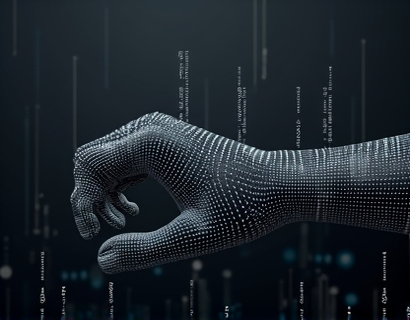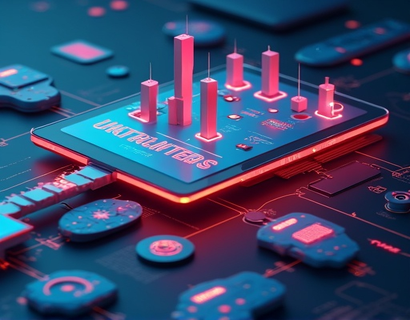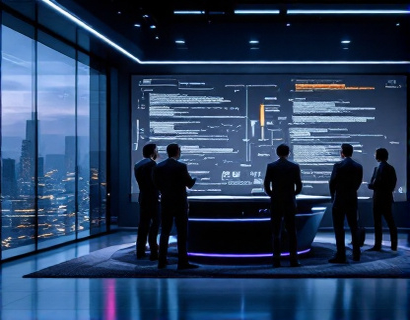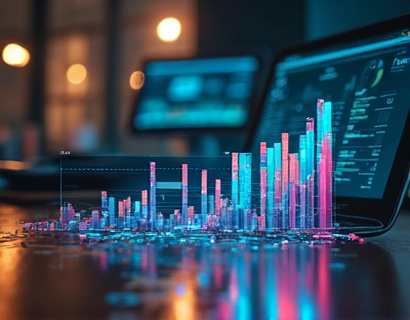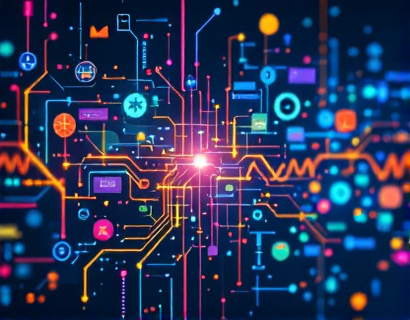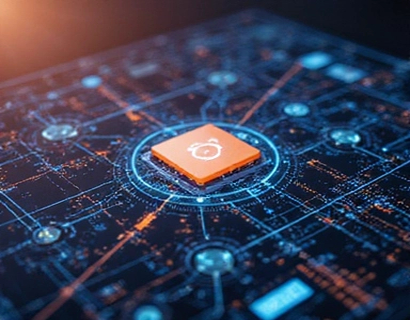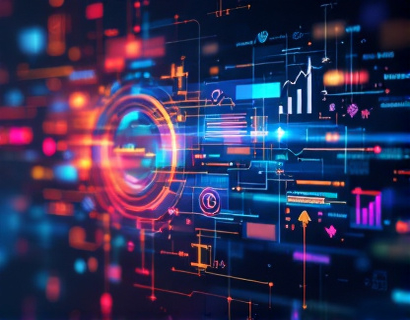Revolutionizing User Experiences: The Synergy of Crypto and AI
The intersection of cryptocurrency and artificial intelligence (AI) is ushering in a new era of digital innovation, transforming the way users interact with technology. This convergence is not just a technological advancement but a paradigm shift that is redefining the boundaries of what is possible in the digital realm. As we delve into this topic, we will explore the transformative applications of blockchain and AI, and how they are collectively enhancing user experiences and driving growth in the digital age.
The Foundations of Cryptocurrency and AI
To understand the profound impact of this synergy, it's essential to first grasp the fundamentals of both cryptocurrency and AI. Cryptocurrency, often referred to as digital or virtual currency, operates on a decentralized network known as blockchain. This technology ensures transparency, security, and immutability, making it an ideal foundation for various financial and non-financial applications.
Artificial intelligence, on the other hand, encompasses a range of technologies designed to simulate human intelligence processes such as learning, reasoning, and self-correction. AI algorithms can analyze vast amounts of data, identify patterns, and make predictions or decisions with minimal human intervention. When combined, these technologies create a powerful toolset for innovation.
Enhancing Security and Trust
One of the most significant contributions of blockchain in the context of AI is the enhancement of security and trust. Traditional AI systems often rely on centralized data storage, making them vulnerable to breaches and manipulation. By leveraging blockchain, AI applications can store and manage data in a decentralized manner, reducing the risk of single points of failure and ensuring data integrity.
Smart contracts, self-executing contracts with the terms directly written into code, can automate and enforce agreements between parties in AI-driven applications. This not only streamlines processes but also builds trust among users, as transactions are transparent and tamper-proof. For instance, in supply chain management, AI can optimize logistics while blockchain ensures that each step is recorded and verified, providing an immutable record of the process.
Personalized User Experiences
The integration of AI with cryptocurrency is revolutionizing how user experiences are personalized. AI algorithms can analyze user behavior, preferences, and patterns to deliver tailored content and services. In the realm of digital currencies, this means creating more intuitive and user-friendly platforms for trading, investing, and managing digital assets.
For example, AI-driven chatbots can provide 24/7 customer support, answering queries and guiding users through complex processes with ease. These chatbots can also adapt their responses based on user interactions, ensuring a more personalized and efficient experience. Additionally, AI can analyze market trends and user data to offer personalized investment recommendations, helping users make informed decisions.
Optimizing Trading and Investment
The financial sector is one of the most impacted areas where crypto and AI converge. AI algorithms can process and analyze vast amounts of market data in real-time, identifying trends and patterns that humans might miss. This capability is particularly valuable in cryptocurrency trading, where market volatility is high and timing is crucial.
Automated trading bots powered by AI can execute trades based on predefined strategies, reducing emotional decision-making and increasing efficiency. These bots can also adapt to changing market conditions, optimizing strategies on the fly. Furthermore, AI can help in risk management by predicting potential market movements and suggesting hedging strategies.
Blockchain technology complements this by providing a transparent and secure environment for trading. The use of smart contracts can automate trade executions, ensuring that transactions are executed precisely as agreed upon. This reduces the need for intermediaries, lowering transaction costs and increasing speed.
Enhancing Identity and Access Management
Identity verification and access management are critical components of any digital platform, and the combination of AI and blockchain offers robust solutions. Traditional identity verification processes are often cumbersome and prone to fraud. AI-powered biometric authentication, combined with blockchain's secure and decentralized storage, can create a more secure and user-friendly identity management system.
For instance, users can store their biometric data on a blockchain, ensuring that it is secure and only accessible when needed. AI algorithms can then verify the user's identity in real-time, providing a seamless and secure access experience. This is particularly beneficial for financial services, healthcare, and other sectors where stringent identity verification is required.
Improving Data Privacy and Ownership
Data privacy has become a significant concern in the digital age, and the fusion of AI and blockchain addresses this issue head-on. Blockchain's decentralized nature ensures that data is not stored in a single location, reducing the risk of large-scale breaches. AI can further enhance data privacy by implementing advanced encryption techniques and ensuring that only authorized parties can access specific data.
Moreover, blockchain-based solutions can give users more control over their data. Through the use of self-sovereign identity (SSI) frameworks, users can manage their digital identities and decide who can access their data and for what purpose. AI can assist in this process by analyzing user preferences and automating consent management, ensuring that users' privacy rights are respected.
Innovative Application Development
The synergy of crypto and AI is not only transforming existing applications but also giving rise to entirely new ones. Developers are leveraging these technologies to create innovative solutions that were previously unimaginable. For instance, decentralized finance (DeFi) platforms combine AI-driven analytics with blockchain technology to offer a wide range of financial services, from lending and borrowing to insurance and derivatives trading.
Another exciting area is the development of decentralized autonomous organizations (DAOs), which use smart contracts and blockchain to govern and operate without central authority. AI can enhance DAOs by providing data-driven insights and automating decision-making processes, making these organizations more efficient and responsive to user needs.
Challenges and Considerations
While the potential of combining crypto and AI is vast, there are several challenges and considerations that must be addressed. One of the primary concerns is regulatory compliance. The rapidly evolving nature of both technologies makes it challenging to keep up with regulatory changes and ensure compliance across different jurisdictions.
Another challenge is the technical complexity involved in integrating these technologies. Developers need a deep understanding of both blockchain and AI to create robust and secure applications. Additionally, there is a need for standardization to ensure interoperability between different systems and platforms.
Privacy and security remain paramount, even with the enhanced measures provided by blockchain and AI. Users must be educated about the risks and best practices to ensure they can fully benefit from these technologies without compromising their security.
The Future of Crypto and AI
As we look to the future, the convergence of cryptocurrency and AI is poised to drive even more significant innovations. The ongoing advancements in machine learning, quantum computing, and blockchain technology will continue to push the boundaries of what is possible.
One exciting frontier is the development of AI-powered decentralized networks that can self-optimize and adapt to changing conditions in real-time. These networks could revolutionize industries such as healthcare, finance, and supply chain management, offering unprecedented levels of efficiency and reliability.
Moreover, the integration of AI with other emerging technologies like the Internet of Things (IoT) and 5G will create a more interconnected and intelligent world. Cryptocurrency will play a crucial role in facilitating transactions and ensuring secure and transparent interactions within these ecosystems.
In conclusion, the combination of cryptocurrency and AI is not just a technological trend but a transformative force that is reshaping the digital landscape. By enhancing security, personalizing user experiences, optimizing processes, and enabling new applications, this synergy is paving the way for a more innovative and user-centric future.




